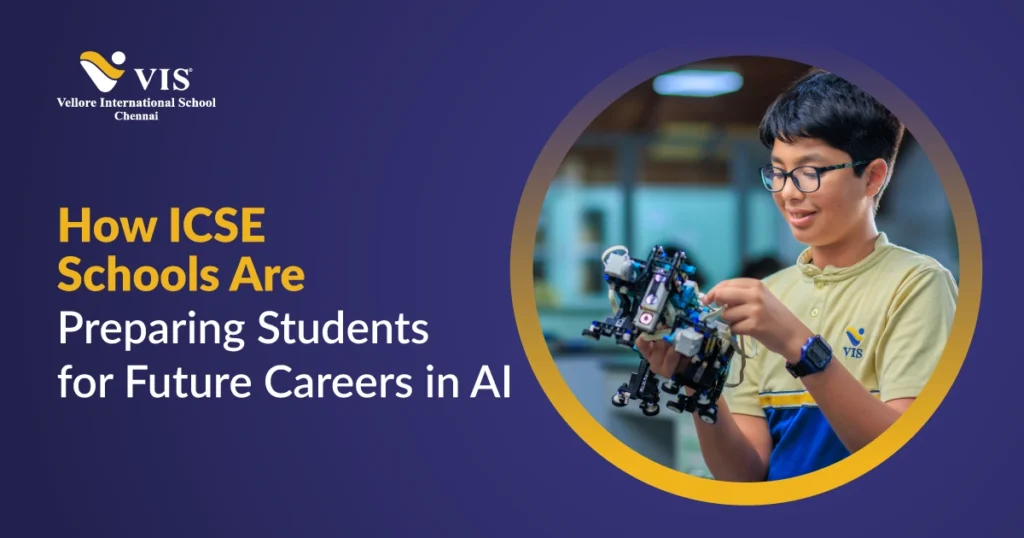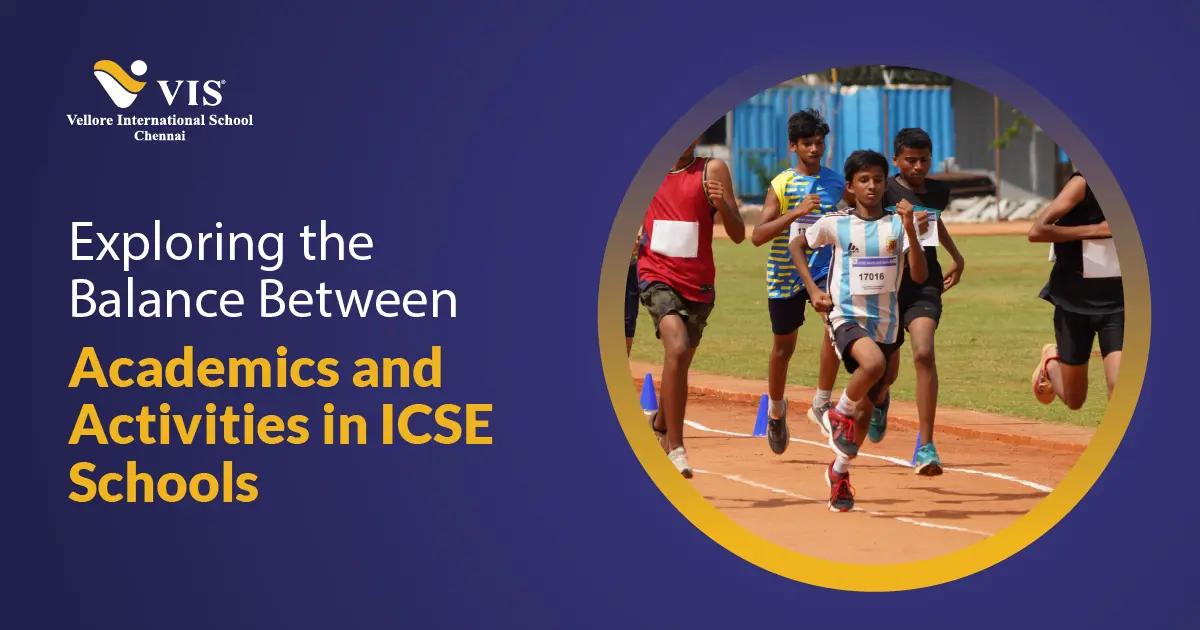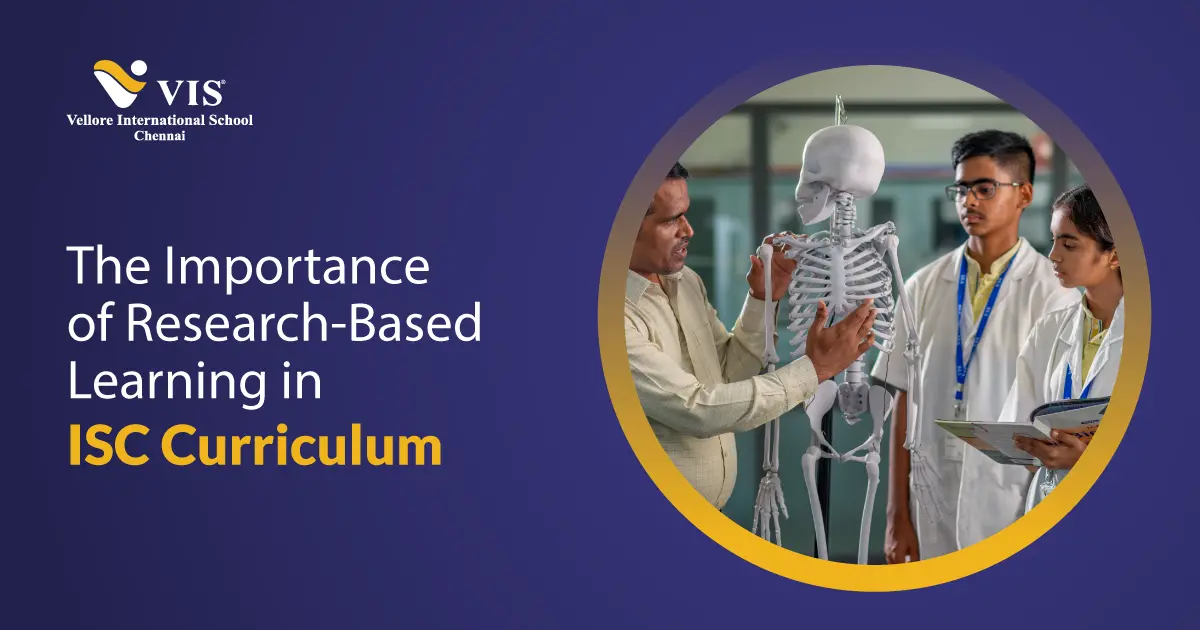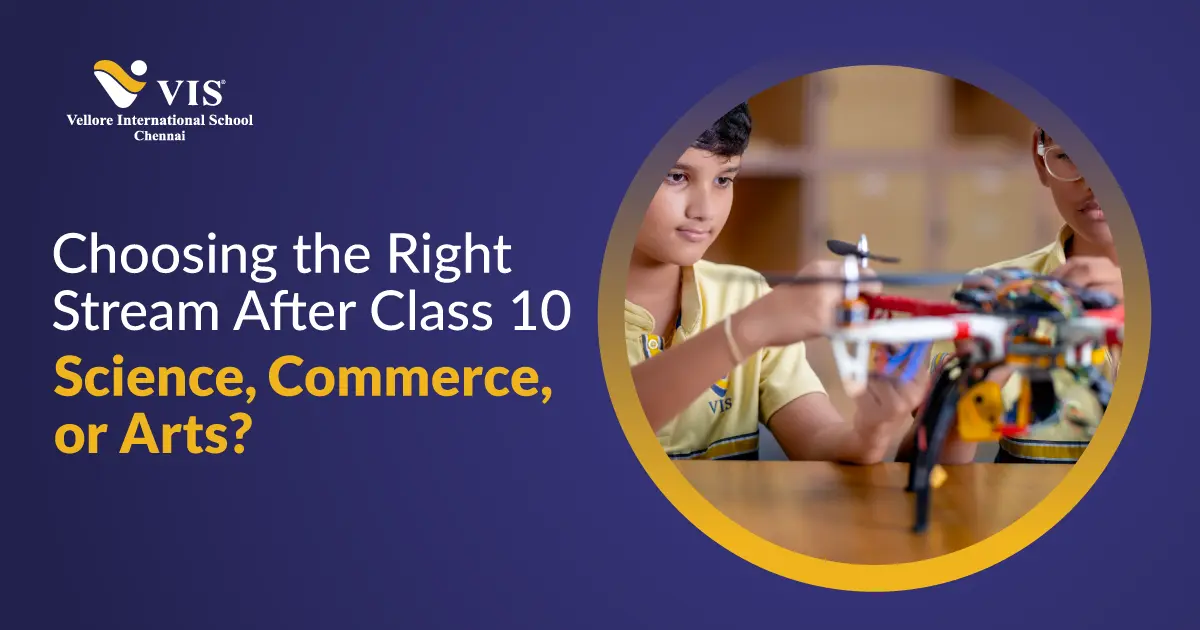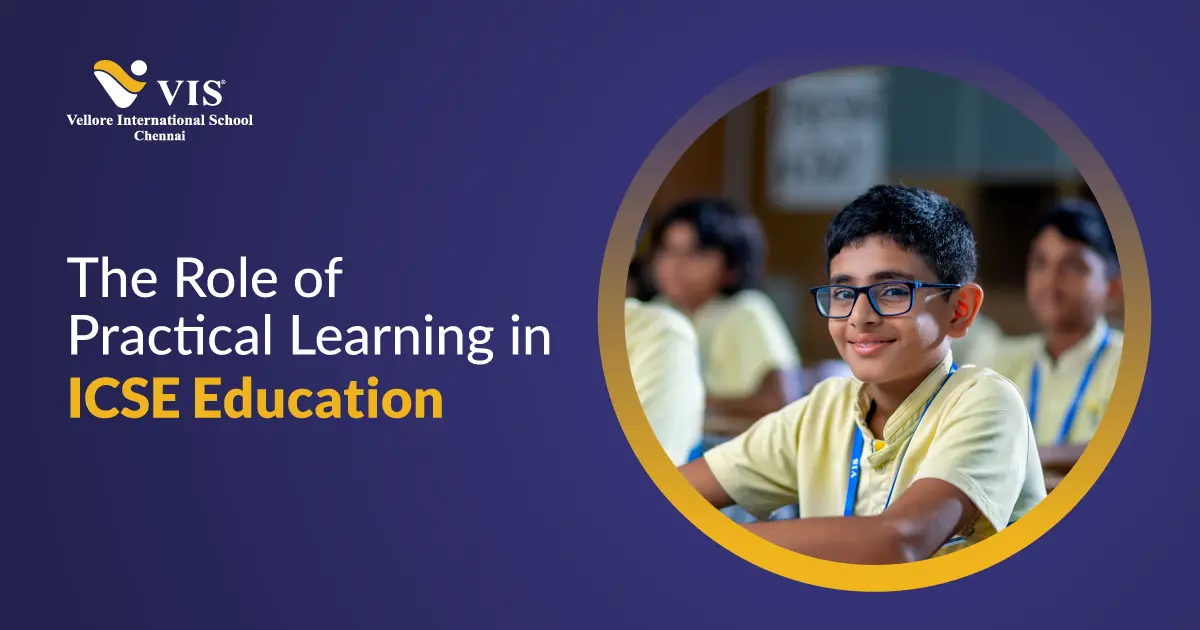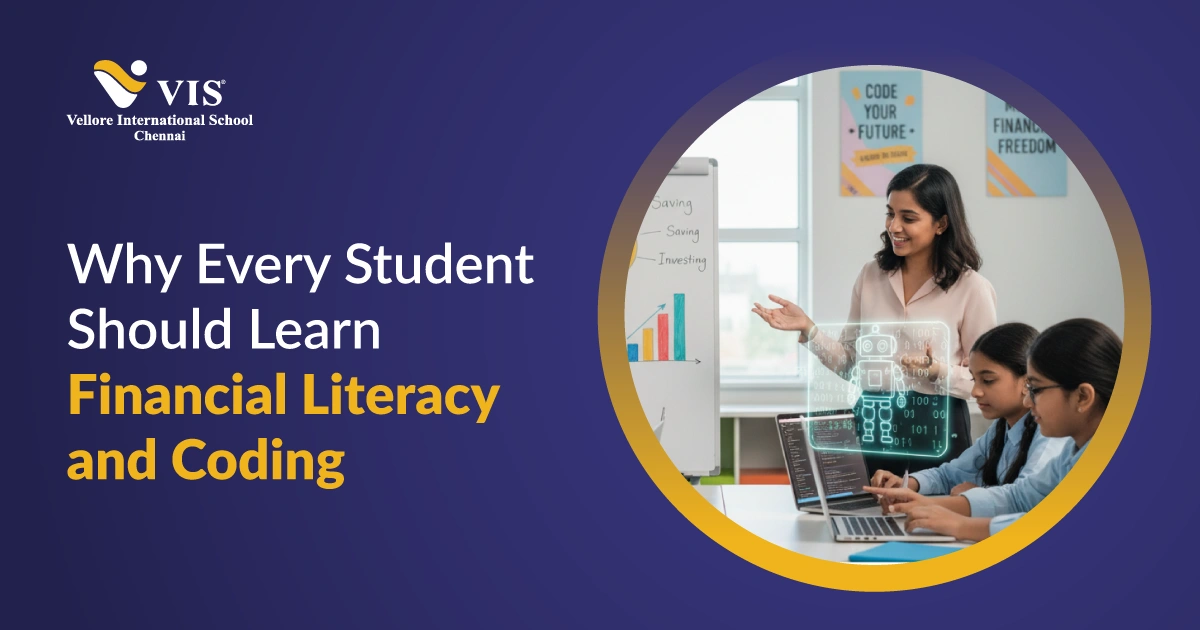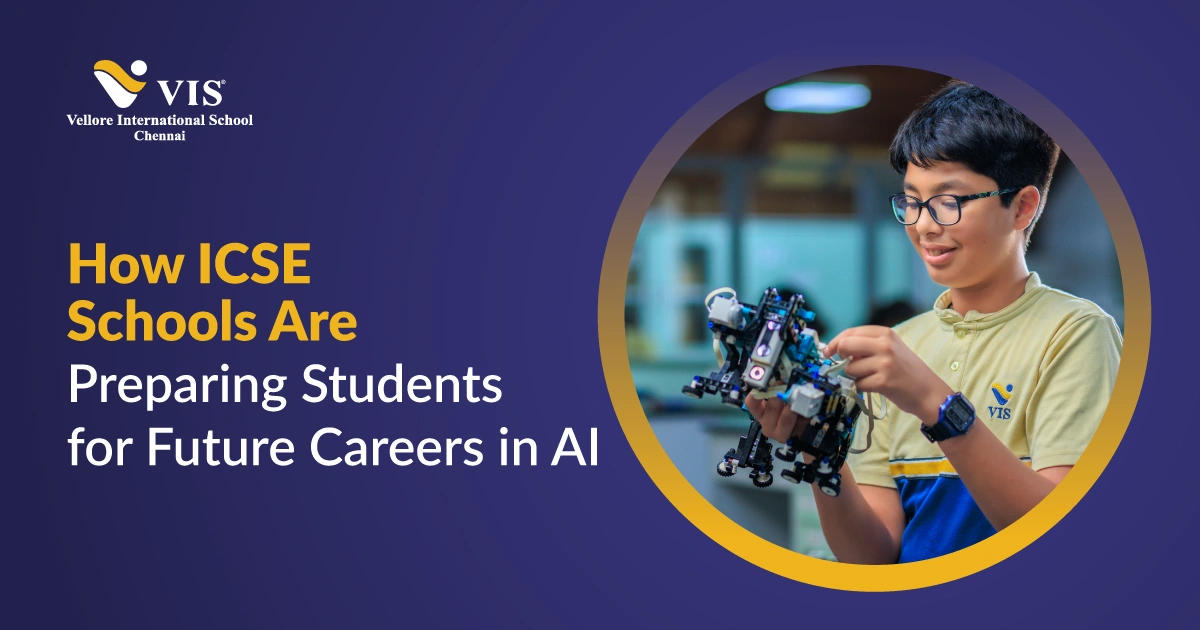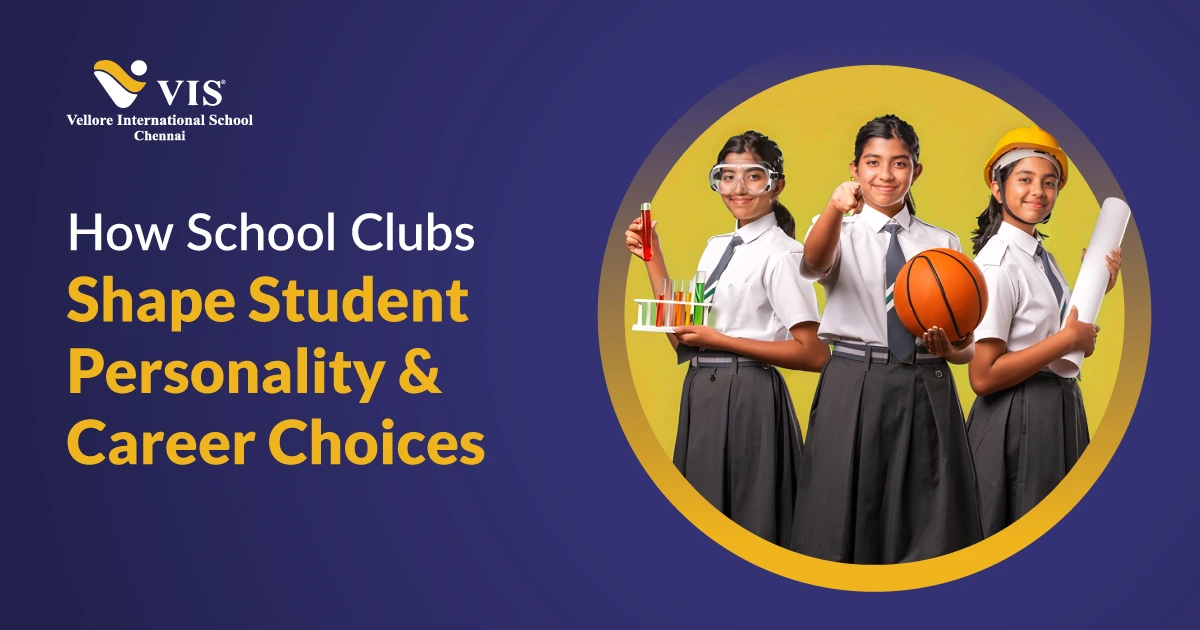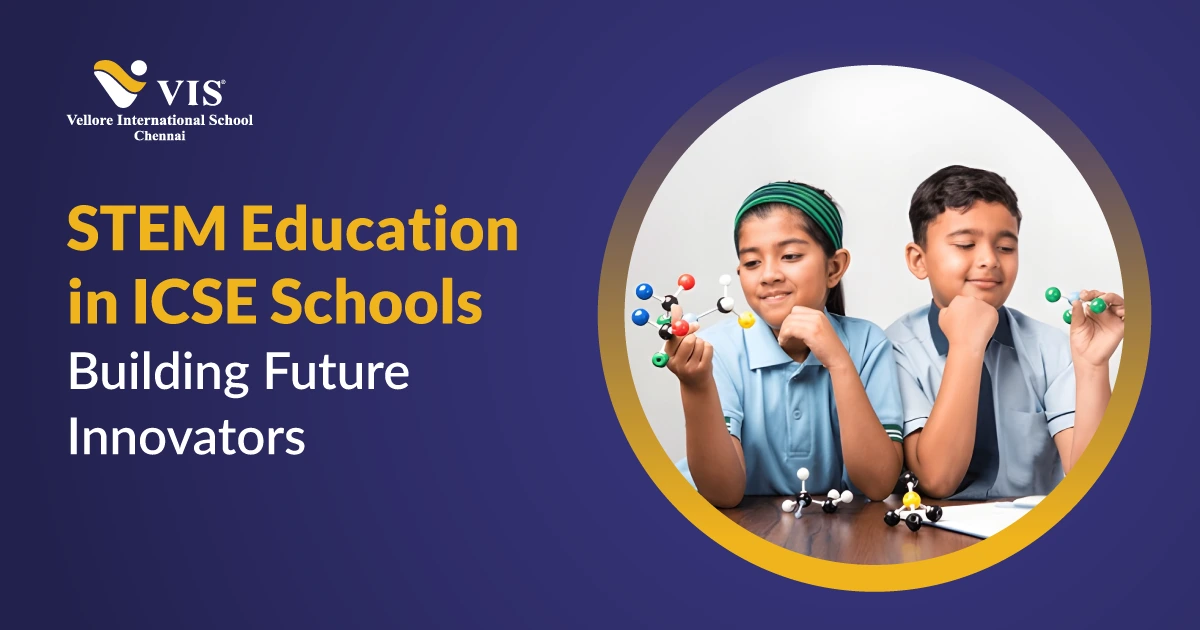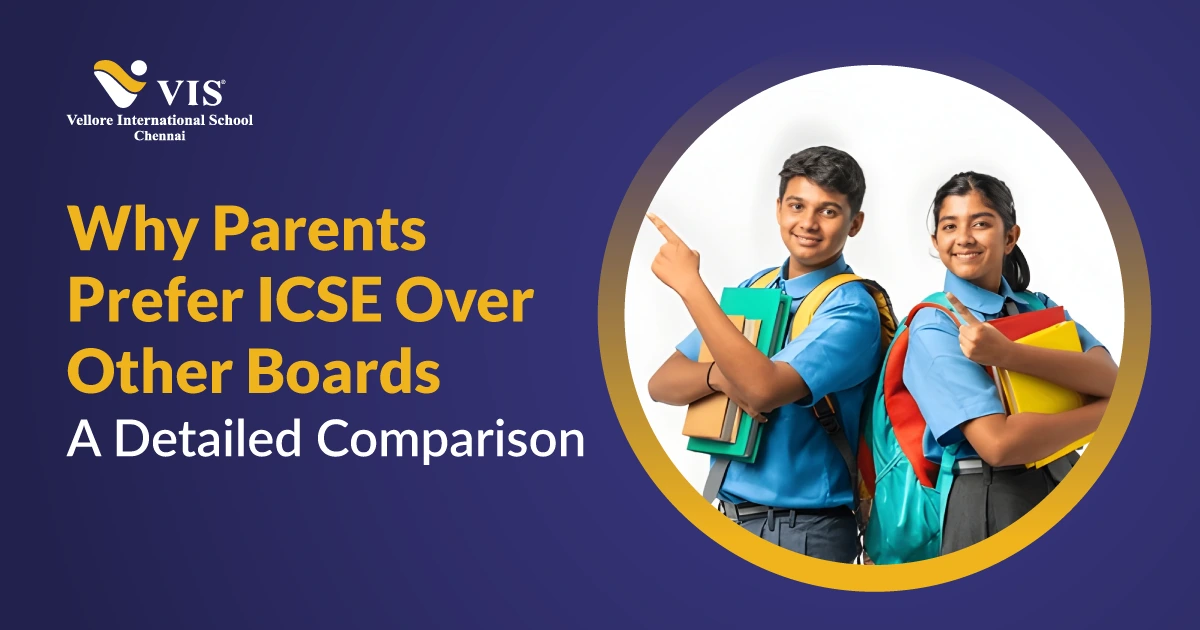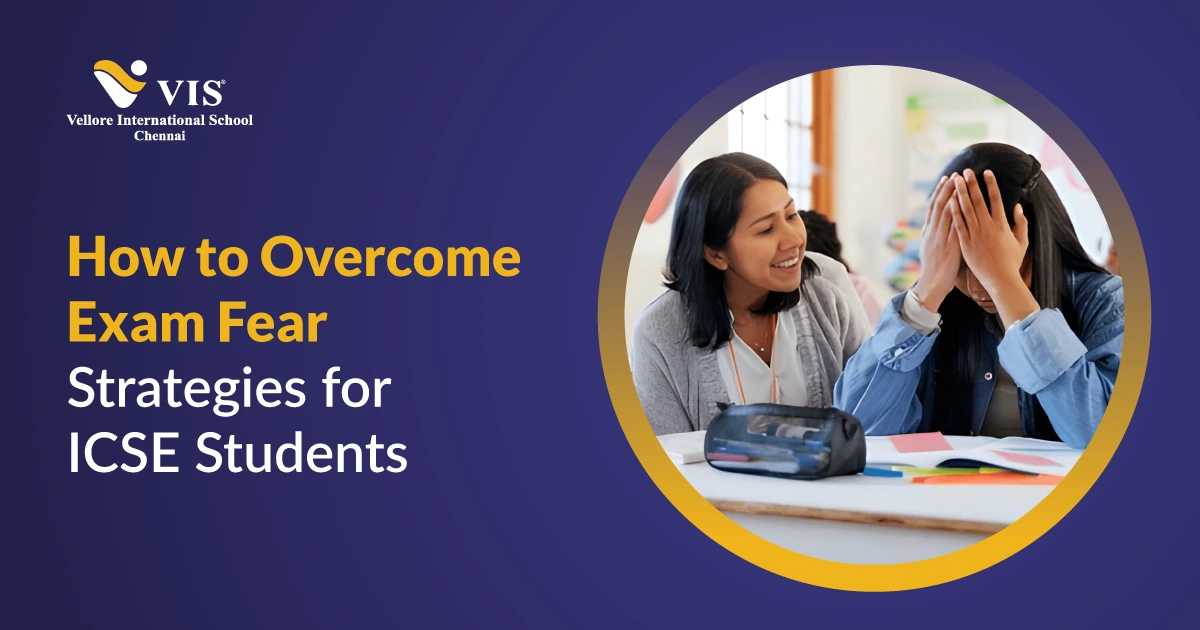What kind of world will our children step into by the time they graduate? What if the classroom could shape the inventors of tomorrow’s intelligent machines? The rise of Artificial Intelligence (AI) is expanding industries, redefining careers, and reshaping education itself.
Across India, ICSE schools and AI learning are happening right now. In this blog, we’ll explore how AI education in ICSE schools is preparing students for future careers and the skills they’re building.
Why AI Education in Schools Matters
AI is not just for coders or scientists anymore. From marketing and medicine to agriculture and art, AI is present everywhere. By introducing AI education in schools, educators are ensuring that students become active creators and critical thinkers.
Early exposure to AI concepts helps students:
- Develop problem solving and analytical thinking
- Understand the ethical implications of technology
- Adapt to new tools and workflows faster
- Discover emerging career paths early
The ICSE curriculum has always focused on strong conceptual foundations. By integrating ICSE schools and AI learning, students gain a balanced education that combines core academics with future oriented skills.
The Role of ICSE Schools and AI Learning in Shaping Mindsets
Unlike rote based learning systems, ICSE schools focus on critical thinking, comprehension, and application. This makes them a natural fit for AI education in schools, where students are encouraged to explore, question, and innovate.
Through workshops, project based learning, and interdisciplinary coursework, ICSE schools and AI learning develop curiosity. For example, a simple math lesson might expand into teaching pattern recognition, or a geography project might use AI tools to predict weather patterns.
This kind of integration builds knowledge and mindset, the willingness to approach problems with creativity and logic.
Building Core AI Skills for Students Early
To thrive in an AI world, students need more than technical knowledge, they need AI skills for students that cover multiple dimensions:
1) Computational Thinking
At the heart of AI is the ability to break complex problems into smaller, manageable parts. Through puzzles, coding games, and structured exercises, students learn how to think logically and design step by step solutions. This builds a mindset that’s essential for AI model creation.
2) Data Literacy
AI runs on data, and understanding how data is collected, analysed, and interpreted is key. ICSE students are taught to observe patterns, clean datasets, and draw insights, skills that form the core of intelligent decision making.
3) Coding Foundations
Languages like Python and Scratch introduce students to real world AI development. By building small chatbots, games, or prediction models, learners get hands-on exposure to how algorithms work, making abstract concepts tangible.
4) Analytical Reasoning
Beyond coding, students are encouraged to interpret AI outputs, identify trends, and refine solutions. This strengthens their ability to think critically and make evidence based decisions.
5) Ethical Awareness
ICSE schools highlight responsibility by discussing privacy, bias, and the social impact of AI. This ensures students develop technical skills and a strong moral compass.
By nurturing these AI skills for students early, schools equip them to excel in future careers spanning AI, data science, robotics, and beyond.
Classroom Innovations Driving AI Education in Schools
Modern classrooms look very different from a decade ago. Smart boards, cloud based learning platforms, and AI powered tools are becoming common. ICSE schools have embraced this transformation by embedding AI education in schools through:
1) AI Integrated Lesson Plans
Teachers are now leveraging intelligent platforms to create adaptive lesson plans. These AI powered tools assess each student’s learning pace, strengths, and weaknesses, helping educators personalise lessons and provide targeted support.
This ensures that no student is left behind, and learning becomes more engaging and effective.
2) Virtual Labs
Instead of only reading about concepts, students experience them through immersive virtual labs. They can experiment with neural network simulations, run basic AI models or explore robotics modules safely and interactively. This practical approach turns theoretical ideas into tangible experiences.
3) Project Based Assessments
Traditional tests are giving way to practical, project based evaluations. Students build chatbots, create predictive models, or solve real world problems using AI tools. This method deepens understanding and nurtures innovation by encouraging students to apply concepts creatively.
4) Collaborative Learning Environments
Group projects and peer to peer learning have become central. By working together on AI challenges, students develop teamwork, communication, and critical thinking skills, essential for future workplaces.
Together, these innovations ensure that ICSE schools and AI learning are woven into daily education, fostering a generation that learns through exploration and collaboration.
Encouraging Curiosity Through Competitions and Clubs
Many ICSE schools run AI clubs, coding marathons, and innovation challenges. These extracurricular activities help strengthen AI skills for students by giving them space to experiment and create outside of classroom boundaries.
- Hackathons encourage teamwork and innovation.
- Coding clubs introduce students to AI libraries and tools.
- Robotics competitions bring AI concepts to life through tangible projects.
These activities often become the spark that inspires a student to pursue a career in AI, data science, or engineering.
Teacher Training: The Foundation of AI Education in Schools
No educational reform works without empowered teachers. That’s why ICSE schools and AI learning rely heavily on continuous professional development for educators. Teachers receive training to:
- Integrate AI topics into existing subjects.
- Use AI tools for classroom management and teaching.
- Stay updated with emerging technologies.
- Guide students ethically in AI projects.
A) Collaboration Across Subjects for Holistic Learning
AI isn’t limited to computer science. ICSE schools encourage cross subject integration to enhance ICSE schools and AI learning. For instance:
- History classes might use AI to analyse historical data.
- Language subjects can teach natural language processing basics.
- Art and music can explore AI generated creativity.
This interdisciplinary approach ensures students see AI as a versatile tool rather than a niche skill.
B) Bridging the Gap Between Theory and Practice
One of the strengths of ICSE schools and AI learning lies in their ability to make concepts tangible. Rather than only focusing on theory, students are encouraged to apply AI skills for students through real world scenarios:
- Predicting rainfall using simple datasets
- Creating chatbots with natural language understanding
- Designing AI models for traffic control
- Exploring facial recognition responsibly
This blend of theory and practice ensures that AI education in schools creates problem solvers, not just textbook learners.
Parent and Community Involvement in AI Education
AI readiness is a collaborative journey. ICSE schools often involve parents and communities to make AI education in schools more impactful. Workshops for parents help them understand:
- How AI influences future careers
- What AI skills for students are important
- How to support children’s learning at home
Community projects also help students apply ICSE schools and AI learning to solve local problems, such as waste segregation, environmental monitoring, or public safety.
Vellore International School: Leading the AI Learning Revolution
At Vellore International School (VIS), the vision is clear: to nurture globally aware, technologically proficient, and ethically grounded students. VIS has been at the forefront of AI education in schools, ensuring that learners are future-ready from day one.
Through structured programs, advanced infrastructure, and a holistic ICSE curriculum, VIS integrates ICSE schools and AI learning seamlessly. Students participate in coding bootcamps, AI workshops, and interdisciplinary projects that develop practical AI skills for students. Teachers undergo regular training to stay updated with the latest tools, ensuring that VIS remains a hub of innovation.
The school’s commitment goes beyond academics—it builds confidence, curiosity, and global competence in every learner.
Final Thoughts: Empowering the Next Generation of AI Pioneers
Artificial Intelligence is rewriting the rules of the global economy. By adapting AI education in schools, India’s ICSE institutions are ensuring that the next generation is leading the change. Through innovative pedagogy, practical exposure, and ethical grounding, these schools are equipping students with essential AI skills for students to thrive in careers.
Institutions like Vellore International School stand as shining examples of what’s possible when tradition meets innovation. The classrooms of today are shaping the AI leaders of tomorrow and the journey has only just begun.
FAQs
1. Why is AI education in schools becoming so important today?
AI education in schools is crucial because it prepares students for future careers in the technology industry. Early exposure builds critical thinking, creativity, and problem solving skills. It ensures students grow as active innovators rather than passive users of technology.
2. How are ICSE schools and AI learning connected in the classroom?
ICSE schools and AI learning go hand in hand through modern teaching methods like smart boards, virtual labs, and project based assessments. These tools make AI easy to grasp and apply in real life scenarios. Students learn to experiment, collaborate, and innovate naturally.
3. What AI skills for students are taught in ICSE schools?
ICSE schools focus on essential AI skills for students, such as coding foundations, data literacy, computational thinking, and ethical awareness. These skills build strong problem-solving abilities and adaptability. Students develop a future ready mindset from an early stage.
4. How does AI education in schools benefit my child’s career?
AI education in schools gives children a competitive edge in higher studies and global job markets. They learn practical skills like coding, data handling, and AI model creation. This early foundation opens doors to exciting careers in AI, robotics, and data science.
5. Are teachers trained to deliver ICSE schools and AI learning effectively?
Yes, ICSE schools invest heavily in teacher training to ensure high quality AI education. Educators receive workshops and certifications to stay updated on the latest technologies. This empowers them to guide students through AI concepts and practical applications.

